Are you noticing your furry friend struggling to go to the bathroom? Dog constipation can be a discomforting issue for both pets and their owners. Understanding the causes, remedies, and when to seek veterinary advice is crucial for maintaining your dog’s health and well-being.
Contents Overview
What is Dog Constipation?
Constipation in dogs refers to difficulty or infrequency in passing stools. It can manifest as straining during bowel movements, passing dry or hard stools, or not defecating for an extended period.
Causes of Dog Constipation
Constipation in dogs can stem from various factors, ranging from dietary issues to underlying medical conditions. Understanding these causes in detail can help pet owners recognize and address the root of the problem effectively. Let’s delve deeper into the primary causes:
1- Dietary Issues:
- Low Fiber Intake:Dogs require a sufficient amount of fiber in their diet to maintain healthy bowel movements. Diets lacking in fiber can lead to constipation as the stool becomes hard and difficult to pass. Ensure your dog’s diet includes adequate fiber sources such as vegetables, fruits, and grains.
- Ingestion of Indigestible Material:Dogs are notorious for ingesting objects that they shouldn’t, such as bones, toys, or hair. These indigestible materials can obstruct the digestive tract, leading to constipation or even more severe complications like intestinal blockages.
- Dehydration:Adequate hydration is essential for proper digestion and bowel function in dogs. Insufficient water intake can result in dry, hard stools that are challenging to pass. Encourage your dog to drink plenty of water, especially during hot weather or after vigorous exercise.
2- Medical Conditions:
- Intestinal Blockages:Foreign objects, such as toys or rocks, can become lodged in the intestinal tract, causing a blockage. Tumors or strictures within the intestines can also impede the passage of stool, resulting in constipation. Prompt veterinary intervention is necessary to address intestinal blockages.
- Neurological Disorders:Conditions affecting the nervous system can interfere with the normal functioning of the bowel muscles, leading to constipation. Disorders such as spinal cord injuries or degenerative myelopathy may disrupt the signals between the brain and the intestines, resulting in irregular bowel movements.
- Anal Gland Problems:Impacted or infected anal glands can cause discomfort and pain during defecation, leading to constipation. Dogs may avoid passing stool due to the discomfort associated with anal gland issues. Regular expression of anal glands by a veterinarian can help prevent complications.
- Painful Conditions:Dogs experiencing pain, such as arthritis or orthopedic injuries, may find it challenging to assume the posture necessary for defecation. Consequently, they may hold back bowel movements, leading to constipation. Managing pain through medication or physical therapy can alleviate this issue.
3- Medications:
- Some medications, such as certain pain relievers or opioids, can have constipation as a side effect. If your dog is on medication and experiencing constipation, consult your veterinarian for potential alternatives or supplemental treatments to mitigate this side effect.
4- Lifestyle Factors:
- Lack of Exercise:Regular physical activity is essential for maintaining optimal bowel function in dogs. Sedentary lifestyles can lead to sluggish digestion and constipation. Ensure your dog receives daily exercise appropriate for their age, breed, and health condition.
- Stress or Anxiety:Dogs experiencing stress or anxiety may exhibit changes in their bowel habits, including constipation. Environmental changes, separation anxiety, or traumatic events can trigger stress responses that affect gastrointestinal function. Creating a calm and predictable environment for your dog can help alleviate stress-related constipation.
Identifying the specific cause of constipation in your dog may require careful observation, dietary adjustments, and consultation with a veterinarian. By addressing the underlying factors contributing to constipation, you can help ensure your dog’s digestive health and overall well-being.
Remedies for Dog Constipation
Constipation in dogs can be distressing for both pets and their owners. Fortunately, several remedies can help alleviate constipation and restore normal bowel function in dogs. Let’s explore these remedies in detail:
1- Increase Water Intake:
- Adequate hydration is crucial for maintaining soft and regular bowel movements in dogs. Water helps soften the stool, making it easier to pass.
- Encourage your dog to drink plenty of fresh, clean water throughout the day. Ensure that water bowls are readily available and consider adding water to your dog’s food to increase their fluid intake.
2- Dietary Adjustments:
- A balanced diet with sufficient fiber content is essential for promoting healthy digestion and preventing constipation.
- Incorporate fiber-rich foods into your dog’s diet, such as canned pumpkin, green beans, or leafy vegetables. These fibrous foods add bulk to the stool and facilitate smoother bowel movements. Avoid feeding your dog bones or other indigestible items that could contribute to constipation or intestinal blockages.
3- Regular Exercise:
- Physical activity stimulates intestinal motility and promotes regular bowel movements in dogs.
- Ensure your dog receives daily exercise appropriate for their age, breed, and health condition. Activities such as walking, running, or playing fetch can help keep your dog’s digestive system functioning optimally. Regular exercise also helps alleviate stress, which can contribute to constipation.
4- Massage:
- Gentle abdominal massage can help stimulate bowel movements and alleviate discomfort associated with constipation.
- Using gentle circular motions, massage your dog’s abdomen in a clockwise direction. This can help stimulate peristalsis, the wave-like muscle contractions that propel food through the digestive tract. Be gentle and observant of your dog’s comfort level during the massage.
5- Natural Laxatives:
- Certain natural substances can act as mild laxatives, helping to soften the stool and promote bowel movements.
- Consider adding small amounts of coconut oil or olive oil to your dog’s food. These oils contain healthy fats that lubricate the intestines and facilitate the passage of stool. Start with a conservative amount and gradually increase if necessary, monitoring your dog’s response.
6- Warm Bath:
- A warm bath can help relax your dog’s muscles and promote bowel movements.
- Fill a bathtub with warm water and gently place your dog in the water. The warmth of the water can help soothe discomfort and encourage relaxation, potentially aiding in the passage of stool. Be sure to supervise your dog during the bath and ensure the water is not too hot.
7- Veterinary Approved Remedies:
- In some cases, your veterinarian may recommend specific medications or supplements to address constipation in dogs.
- If home remedies are ineffective or if your dog’s constipation is severe, consult your veterinarian for further evaluation and treatment. Your veterinarian may prescribe medications to stimulate bowel movements or recommend specialized diets or supplements tailored to your dog’s needs.
8- Probiotics:
- Probiotics are beneficial bacteria that promote gut health and may help regulate bowel movements in dogs.
- Consider adding a probiotic supplement to your dog’s diet to support healthy digestion. Probiotics can help restore the balance of intestinal flora, which may be disrupted during periods of constipation or gastrointestinal distress.
By implementing these remedies and making appropriate lifestyle adjustments, you can help alleviate your dog’s constipation and promote their overall digestive health. However, if constipation persists or if your dog exhibits signs of distress, it’s essential to seek veterinary advice promptly. Your veterinarian can help identify any underlying medical conditions contributing to constipation and recommend appropriate treatment.
Foods/Edibles to Avoid in Dog Constipation
While a balanced diet is essential for maintaining your dog’s overall health, certain foods and edibles can exacerbate constipation or contribute to gastrointestinal issues. Understanding which foods to avoid can help prevent or alleviate constipation in dogs. Let’s explore these in detail:
1- Highly Processed Foods:
- Highly processed foods, such as commercial dog treats or snacks, often lack sufficient fiber and nutrients necessary for promoting healthy digestion.
- Avoid feeding your dog excessive amounts of processed treats, as they may contain artificial ingredients, preservatives, and fillers that can disrupt gastrointestinal function. Opt for natural, whole-food treats or use fruits and vegetables as healthy alternatives.
2- Bones and Rawhide Chews:
- While bones and rawhide chews may provide entertainment and dental benefits for dogs, they can pose a risk of constipation or intestinal blockages if ingested in large or sharp pieces.
- Bones and rawhide chews can splinter or break into sharp fragments, which may become lodged in the intestines and cause obstruction. Avoid giving your dog bones or rawhide chews, especially if they have a history of digestive issues or are prone to constipation.
3- High-Fat Foods:
- Foods high in fat, such as fatty cuts of meat or greasy leftovers, can be difficult for dogs to digest and may contribute to constipation.
- High-fat foods can slow down the digestive process and lead to the formation of hard, dry stools. Limit your dog’s intake of fatty foods and opt for lean protein sources and healthy fats, such as salmon or coconut oil, in moderation.
4- Dairy Products:
- While dairy products may be enjoyed by some dogs, many dogs are lactose intolerant and may experience digestive upset, including constipation, after consuming dairy.
- Dairy products like milk, cheese, and yogurt contain lactose, a sugar that many dogs have difficulty digesting. Consuming dairy can lead to gas, bloating, and constipation in sensitive individuals. If your dog enjoys dairy, opt for lactose-free alternatives or offer dairy products in small amounts as an occasional treat.
5- Highly Spiced or Seasoned Foods:
- Spicy or heavily seasoned foods can irritate the gastrointestinal tract and disrupt normal bowel function in dogs.
- Avoid feeding your dog foods seasoned with spices like garlic, onion, chili powder, or excessive amounts of salt. These ingredients can cause inflammation and irritation in the digestive system, leading to discomfort and potential constipation. Stick to plain, unseasoned foods to avoid digestive upset.
6- Foods High in Sugar:
- Foods high in sugar, such as candies, desserts, or sugary snacks, can contribute to imbalances in blood sugar levels and disrupt gastrointestinal health.
- High sugar intake can alter the balance of beneficial bacteria in the gut and promote the growth of harmful microbes, leading to digestive disturbances. Avoid offering sugary treats to your dog and opt for natural, low-sugar alternatives like fruits or vegetables instead.
7- Unripe or Undercooked Fruits and Vegetables:
- Unripe or undercooked fruits and vegetables can be difficult for dogs to digest and may contribute to gastrointestinal discomfort, including constipation.
- Ensure that fruits and vegetables offered to your dog are ripe and thoroughly cooked or steamed to improve digestibility. Raw, unripe produce may contain compounds that are harder for dogs to break down and may lead to gastrointestinal upset or constipation.
By avoiding these foods and edibles and prioritizing a balanced, nutritious diet, you can help support your dog’s digestive health and prevent constipation. Additionally, always monitor your dog’s response to new foods and treats, and consult with your veterinarian if you have any concerns about their diet or digestive function.
When to Seek Veterinary Advice
While mild cases of constipation can often be resolved at home, it’s essential to seek veterinary advice if:
- Your dog is straining excessively or showing signs of distress.
- Constipation persists for more than 24-48 hours.
- There is blood in the stool or signs of abdominal pain.
- Your dog is vomiting or refusing to eat.
- Your dog has a history of medical conditions or is on medication.
Veterinary Treatment for Dog Constipation
While many cases of dog constipation can be effectively managed at home with dietary adjustments and lifestyle changes, severe or persistent constipation may require veterinary intervention. Veterinary treatment aims to address the underlying cause of constipation and alleviate discomfort to restore normal bowel function in dogs. Let’s explore the various aspects of veterinary treatment in detail:
1- Physical Examination:
- The first step in veterinary treatment for constipated dogs involves a thorough physical examination to assess your dog’s overall health and identify any underlying medical conditions contributing to constipation.
- During the physical examination, your veterinarian will palpate your dog’s abdomen to check for abnormalities, assess hydration status, and evaluate the condition of the anal glands. They may also perform a rectal examination to assess the consistency of the stool and check for any signs of obstruction or impaction.
2- Diagnostic Tests:
- Depending on the suspected cause of constipation, your veterinarian may recommend diagnostic tests to further evaluate your dog’s condition and identify underlying issues.
- Diagnostic tests may include blood tests to assess organ function and rule out systemic diseases, imaging studies such as X-rays or ultrasound to visualize the gastrointestinal tract and detect any abnormalities or obstructions, and fecal analysis to check for parasites or other signs of gastrointestinal disease.
3- Manual Disimpaction:
- In cases of severe constipation or fecal impaction, manual disimpaction may be necessary to remove hardened stool and relieve obstruction.
- Manual disimpaction is performed under sedation or anesthesia to minimize discomfort for the dog. Your veterinarian will gently insert a lubricated gloved finger into the rectum to break up and remove the impacted stool. This procedure may be followed by an enema to help soften the remaining stool and facilitate its passage.
4- Medications:
- Explanation:Your veterinarian may prescribe medications to help stimulate bowel movements, soften stool, or relieve discomfort associated with constipation.
- Extended Explanation:Common medications used to treat constipation in dogs include stool softeners, laxatives, or prokinetic agents that promote intestinal motility. Your veterinarian will prescribe the appropriate medication based on your dog’s individual needs and the underlying cause of constipation.
5- Dietary Changes:
- Dietary modifications may be recommended to improve bowel function and prevent future episodes of constipation.
- Your veterinarian may advise transitioning your dog to a high-fiber diet or recommending specialized therapeutic diets designed to promote gastrointestinal health. These diets may contain added fiber, prebiotics, or probiotics to support digestive function and regulate bowel movements.
6- Surgical Intervention:
- In rare cases of severe constipation or intestinal obstruction, surgical intervention may be necessary to remove foreign objects, tumors, or strictures obstructing the gastrointestinal tract.
- Surgical procedures such as enterotomy or colotomy may be performed to remove obstructions and restore normal bowel function. Your veterinarian will discuss the risks and benefits of surgery and recommend the most appropriate course of action for your dog’s condition.
7- Follow-Up Care:
- After initiating veterinary treatment for constipation, follow-up care is essential to monitor your dog’s progress and ensure that treatment is effective.
- Your veterinarian may schedule follow-up appointments to assess your dog’s response to treatment, adjust medications or dietary recommendations as needed, and address any lingering concerns or complications. They may also guide preventive measures to help reduce the risk of recurrent constipation in the future.
By seeking prompt veterinary care and following your veterinarian’s recommendations, you can help alleviate your dog’s constipation and promote their overall gastrointestinal health and well-being. Remember to communicate openly with your veterinarian about any concerns or changes in your dog’s condition to ensure the best possible outcome.
Bottom Line
Dog constipation is a common but concerning issue that can affect your pet’s quality of life. By understanding the causes, implementing appropriate remedies, and seeking timely veterinary advice when necessary, you can help your furry companion stay happy and healthy. Remember to monitor your dog’s bowel habits closely and make adjustments to their diet and lifestyle as needed to prevent constipation in the future.

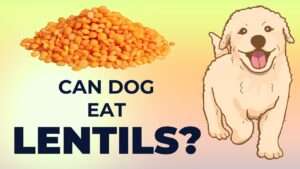
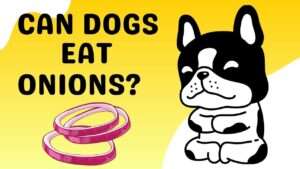
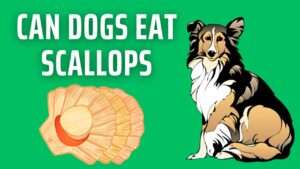
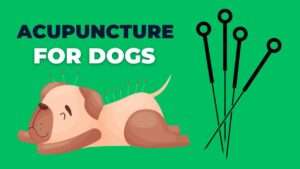


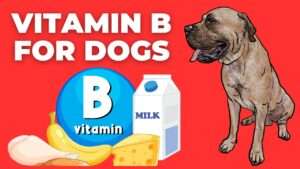


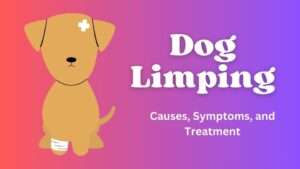
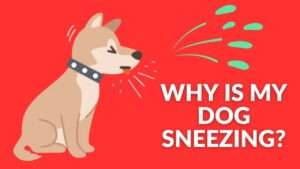
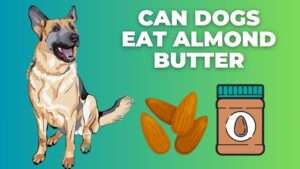




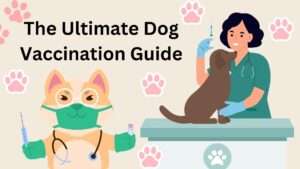
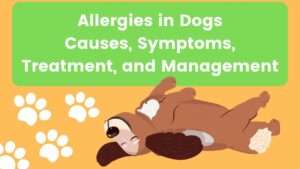
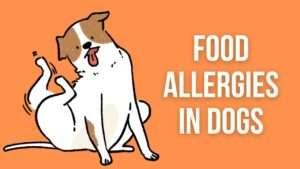














+ There are no comments
Add yours